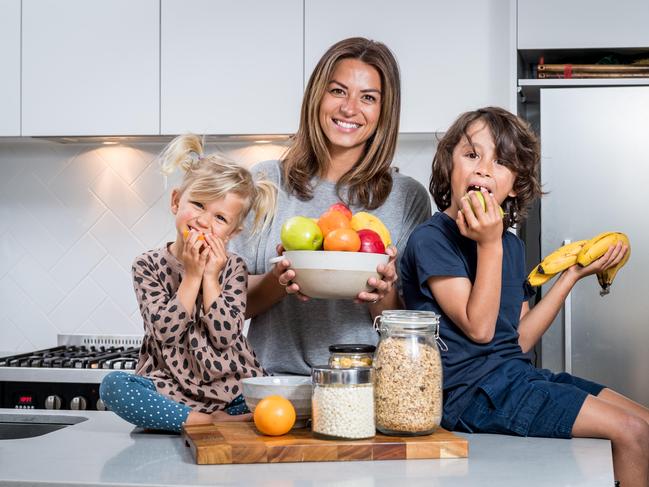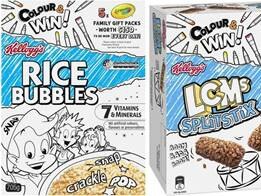The junk food advertising loophole enraging leading health groups
Obesity experts want tougher restrictions on advertising junk food to children after cereal giant Kellogg’s exploited a loophole to entice kids into consuming sugar-laden snacks.
Health
Don't miss out on the headlines from Health. Followed categories will be added to My News.
- High-sugar kids’ snacks named and shamed
- Head of controversial My Health Record system quits
- After school care services failing Sydney kids
Exclusive: Obesity experts want tougher restrictions on advertising junk food to children after Kellogg’s exploited a loophole to tempt kids into consuming sugary foods via a colouring in competition.
Kelloggs designed black and white packs of popular products, including Coco Pops and LCM Split Stix, inviting children enter a colouring in competition to win Crayola gift packs of art and craft materials.
To make the competition even more attractive to kids they could bring the picture they coloured to life using augmented reality by using an app and a website.

In a decision that has outraged the obesity lobby, the Ads Standards Community Panel which oversees the food industry’s voluntary advertising code, ruled product packaging was not covered by the advertising code and dismissed the complaint.
While the panel found the website was covered by the code it ruled:
“The overall theme of colouring in competition may be directed primarily to children ... the theme, visuals and languages combined created an impression of a site designed to be used by a parent or caregiver and their child, not a child alone”.
The Obesity Policy Coalition’s Executive Manager Jane Martin said it was time for the Government to step in and stop allowing the food industry to set their own rules through self-regulated codes.

“For too long we have left it up to junk food companies to police themselves. We’ve seen no reduction in unhealthy marketing to children since these sham rules were introduced.”
Ms Martin it was time junk food advertising was regulated by “a code implemented by the government like that for alcohol and tobacco advertising”.
Kellogg’s argued the purpose of the promotion was to appeal to families.
Parents were the main grocery buyer and were always looking for fun activities to keep their kids occupied; and they need to purchase stationery when kids go back to school.
A Kellogg’s spokesperson said the Crayola promotion ran across a wide range of products including Sultana Bran, Corn Flakes and K-Time.
“The entry mechanic itself was restricted to adults 18+ and required multiple steps including submitting a ‘25 words or less’ answer to a question to go in the draw,” the spokesperson said.
“The nostalgic feel of the packs, the deliberate lack of brand colours (black & white being the dominant colour scheme) and the main callout as “Fun for you and your family” was targeting the parents in store and online.”

Kellogg’s is a signatory to the Responsible Children’s Marketing Initiative (RCMI) under which it has committed not to advertise its products to children under 12 years unless those products represent healthier dietary choices.
The Obesity Policy Coalition said many of the products promoted through the competition were not healthy and contained over 32 per cent sugar.
Melbourne mum of two Reka Soultanidis says it is a real battle to overcome food company marketing and feed her children a healthy diet.
The Caulfield family eats whole foods but “once we hit the shops it’s difficult to navigate the aisles with the fun characters and monkeys and birds on the packaging at child height,” she said.
To avoid exposing her children to the promotions, the 36-year-old veterinary nurse often leaves her children Zac, aged 7, and Ayla, aged 3, at home and shops by herself.
Despite this, her school-aged son sees his friends paying with collectibles, finger puppets and masks they get from packaged food and pressures her to buy them.
“Sometimes I appear to be a killjoy but I’m happy to take that on board as a mum,” she said.
Ms Soutlanidis said the rules around junk food advertising weren’t strong enough and it would be better if the industry was regulated by the government.
Originally published as The junk food advertising loophole enraging leading health groups


